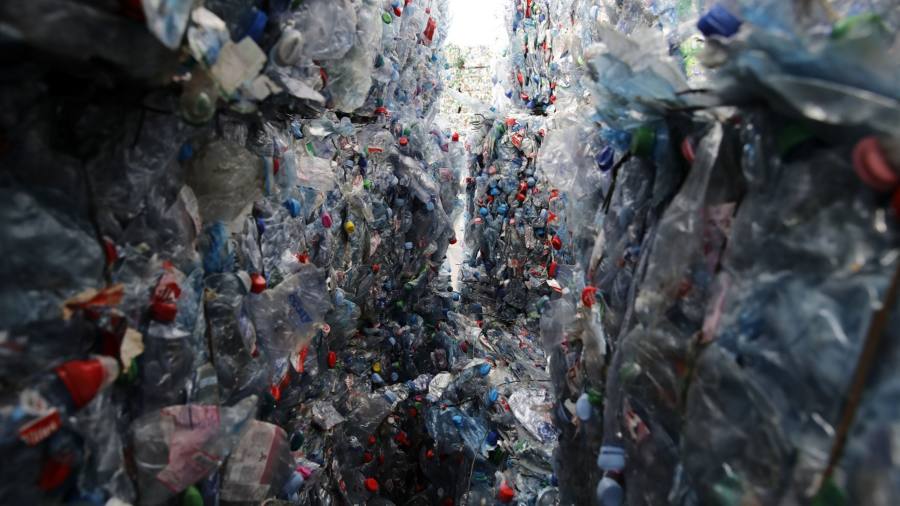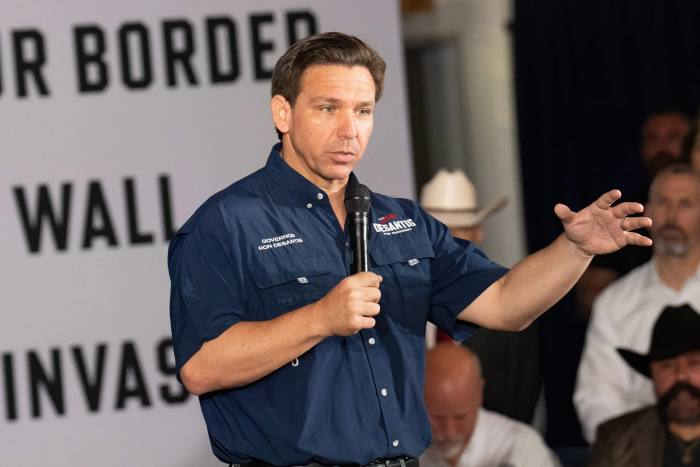
Receive free ESG investing updates
We’ll send you a myFT Daily Digest email rounding up the latest ESG investing news every morning.
Booming demand for electric vehicles will be one of the biggest stories in the second half of 2023. On Monday, shares of electric truckmaker Rivian shot up 17 per cent after the company said it built more trucks than Wall Street had expected. Tesla shares also jumped after it said on Sunday that it had delivered a record number of cars in the second quarter.
These sales numbers are important, but they underscore how important an expanded supply of lithium, cobalt, nickel and other crucial metals will be for EV batteries. The EV sector and its global supply chain is closely followed by Wall Street and will be one of our areas to watch in the months ahead.
Today we have an interview with the head of the second-largest US waste management company, who sees signs of a new surge in recycling business. And I have a report on the state of the ESG bond market as we head into the second half of the year. (Patrick Temple-West)
The clean profit to be made from a dirty business
Can the dirtiest of industries help other businesses clean up their act? That’s the pitch from Jon Vander Ark, chief executive of Republic Services, the US’s second-largest waste management company.
Over the years, he told me, the 40,000-person group has changed the way it describes itself — from a rubbish collector to an environmental services purveyor, which is not just emptying your bins but helping corporations reach their sustainability commitments. That’s not marketing speak, he insisted; it reflected big changes in its business.
Republic will open a polymer centre this year in Las Vegas, to produce food-grade recycled plastics for consumer goods companies. When he announced the plan at a convention 18 months ago, Vander Ark was stunned at the reception he received: about 2,000 representatives from “every major brand and chemical company” packed the hall, of whom 20 said they would buy as much recycled polyethylene terephthalate (rPET) as he could supply.
Such companies have been feeling the pressure to change their packaging, he said, yet the US recycled only 28 per cent of its PET containers, versus 48 per cent in Europe. Such was the demand that the Nevada plant “could be sold out 10 times”, he estimated.
Republic’s first big customer for the Las Vegas operation is Coca-Cola, which has pledged to use at least 50 per cent recycled material in its packaging by 2030. Coca-Cola has already invested in recycling facilities from France to Indonesia, but this is its first such collaboration in the US.
Republic’s polymer centre is the first of four on which it expects to spend about $275mn. It’s a hefty investment but Vander Ark predicts internal rates of return of about 20 per cent.
Vander Ark says corporate America’s evolving approach to recycling has made him optimistic about its wider commitment to sustainability. “In the last 24 months I’ve seen more progress than in the previous five to six years,” he said. “People had the talking part down — every company can show you a two-minute video with a girl on a bike riding through the neighbourhood as violins play in the background — but now I’m starting to see people moving out of the talking part into the doing part.” (Andrew Edgecliffe-Johnson)
Tale of two continents: Europe trounces US in ESG bond investing
On July 1, Florida’s new laws against sustainable investing kicked in. Signed by Republican presidential candidate Ron DeSantis, all state funds are prohibited from using environmental, social and governance (ESG) factors in investment decisions and government contracting.
Other Republican states have mimicked Florida’s anti-ESG efforts, although with varying levels of success. But the message to the financial markets is clear: a large swath of the world’s biggest economy is shut off from ESG investing.

The consequences are starting to emerge in the statistics. On July 3, Bank of America published its latest figures for ESG bond fund flows. Western European bond funds had $2.6bn of inflows in May, making the continent the most important region in the world for ESG investing, according to a July 3 report from BofA. Non-ESG bond funds received $29bn in the first five months of the year, BofA said.
On the other hand, ESG bond funds in the US received just $819mn in May and ESG inflows accounted for only 1 per cent of total cash into fixed income in 2023. Non-ESG bond funds had $150bn in inflows in the first five months of 2023, versus outflows of $250bn for all of 2022, BofA said.
Green bonds, sustainability-linked bonds and other sustainable fixed-income products have run into trouble with greenwashing claims. But regulators are stepping up pressure, and the ESG bond niche is likely to gain rigour in the years ahead.
Although US Republicans are set against ESG, other parts of the world are embracing sustainable bond investing.
In May, Japanese prime minister Fumio Kishida announced his government’s plan to raise $144bn of decarbonisation bonds over the next 10 years. Japanese businesses are jumping into the action too. Last month, Japan Airlines issued $138mn of debt to pay for more fuel-efficient aircraft.
One of the biggest stories in ESG this year remains US politics. How the rest of the world will respond to ESG — with or without the US — will be one of our key themes in the months ahead. (Patrick Temple-West)